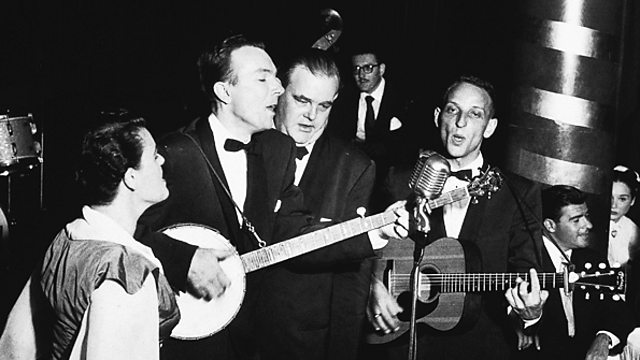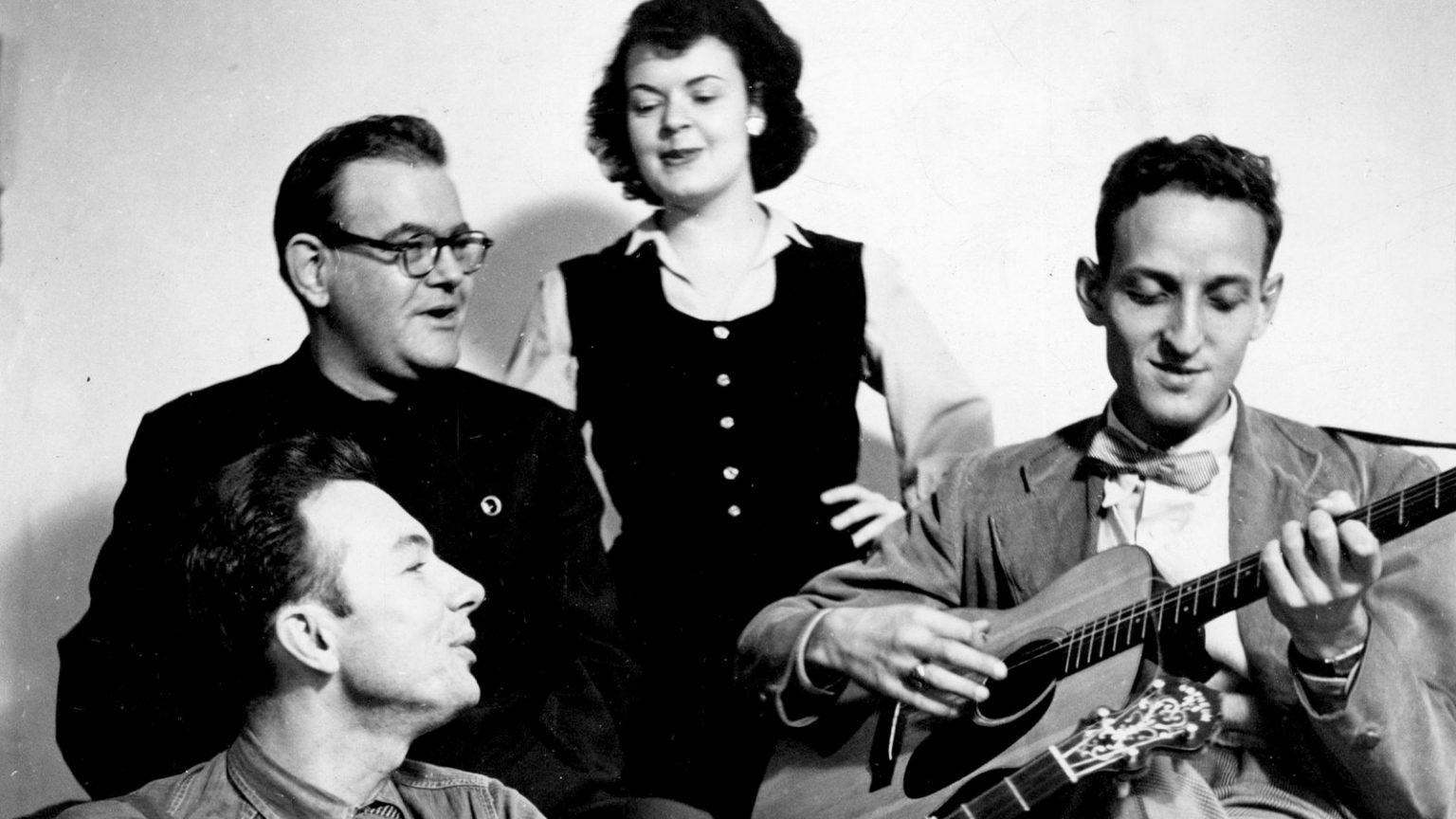The Folk Americana Roots Hall of Fame (FARHOF) was launched in 2019 as an initiative of Boston’s Boch Center. Its purpose is to “celebrate the lifeblood of America’s musical and cultural heritage.” In September, FARHOF announced its inaugural class of inductees, a group that included not only musicians past and present but non-performers as well. The first induction ceremonies will take place in April although an exact date has not yet been announced.
This is the second in a series of articles about FARHOF’s inaugural class.
The Duo or Group of Musicians category recognizes performers whose initial impact on the genre was at least 25 years prior to the year of Induction. The Weavers are one of the four inductees announced as part of the inaugural class in this category.
- “On Top of Old Smoky“
- “So Long, It’s Been Good to Know You“
- “Goodnight Irene“
- “The Wreck Of The John B” (aka The Sloop John B)
- “The Midnight Special“
Chances are you have heard these songs at one time or another. Their popularity even today is due in large part to The Weavers. The group’s recordings and popularity sparked an interest in folk music that led to the folk revival in the late 1950s and early 1960s.
Lee Hayes and Pete Seeger formed the Weavers in November 1948. The two had been part of the Almanac Singers along with Woody Guthrie and others. The Almanac Singers promoted peace and isolationism and initially opposed the United States entry into World War II. The group changed its mind when Germany invaded the Soviet Union. The Almanacs supported the U.S. entry into the war in support of the Allies but soon disbanded thereafter.
Hayes and Seeger were joined by Ronnie Gilbert and Fred Hellerman. It was Hellerman who suggested the name “The Weavers” after an 1892 play by Gerhart Hauptmann. The play depicted the uprising of the Silesian weavers in 1844. Conditions in Silesia – then part of Prussia – were bad, both in industrial and social terms. The uprising of the cotton weavers was part of a growing unrest that led to a democratic revolution opposed by the Prussian state.
By adopting the name The Weavers, the group identified itself as identifying with the poor and working class. Their early success was due to apolitical tunes, however. “Goodnight Irene,” “On Top Of Old Smoky,” “The Midnight Special,” and similar recordings would propel them to the top of the charts. Still, it was their political views that would lead to a decline in popularity.

An FBI informant – who later recanted – identified Pete Seeger and Lee Hayes as Communist Party USA members during the McCarthy Era of the early 1950s. Fred Hellerman had been involved with left-wing groups during the 1930s and 1940s and also came under suspicion of having Communist sympathies. The Weavers were placed under FBI surveillance and were blacklisted, preventing them from performing on television or radio. Decca Records, the group’s record label, terminated the Weavers’ recording contract.
The Weavers disbanded for a time in 1953. Lean times followed for all members of the group. They reunited for a sold out Carnegie Hall performance in 1955 which led to a contract with Vanguard Records. In the late 1950s McCarthyism was fading and folk music was rebounding in popularity. Still, as late as 1962 right-wing groups were protesting their concerts. NBC even cancelled a scheduled appearance of The Weavers on the Jack Paar Show when every member of the group refused to sign a statement disavowing the Communist party.
Pete Seeger left The Weavers in 1958 and recommended Erik Darling as his replacement. Darling left in 1962 to form the Rooftop Singers and was replaced briefly by Frank Hamilton. In 1963, folksinger Bernie Krause joined the group.
Listening today to the songs listed near the start of this article, one is struck by the energy and delight emanating from the recordings. The Weavers had an unassuming style that resonated with the listener. They would soon engage an audience in sing-a-longs when performing live. Pete Seeger would speak the upcoming lines to further engage the audience. The result would be a chorus ringing from footlights to ceiling. If the audience would leave the theater feeling like they had been part of something special, it is because they had been.
The Weavers disbanded in 1964 but the original members would get together for two more concerts in November 1980 and June 1981. Lee Hayes would pass away later 1981 at the age of 67. Pete Seeger died in 2014 at the age of 94. Ronnie Gilbert passed away at 88 in 2015 and Fred Hellerman in 2016 at 89.
The Weavers received a Grammy Lifetime Achievement Award in 2006. Recalling the dark times of political witch-hunts, Fred Hellerman offered these words of hope that are still relevant today:
If you can exist, and stay the course – not a course of blind obstinacy and faulty conception – but one of decency and good sense, you can outlast your enemies with your honor and integrity intact.


